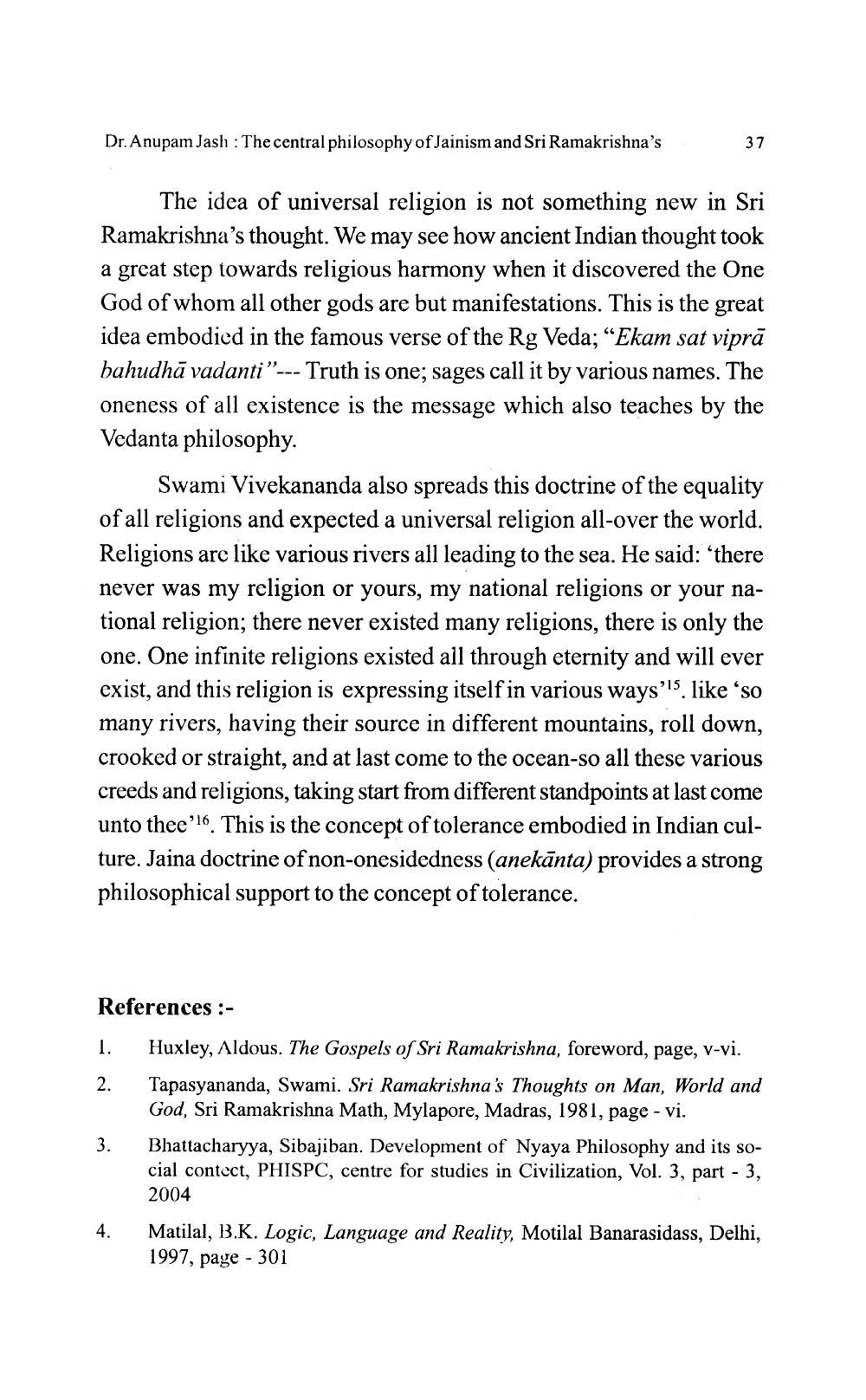________________
Dr. Anupam Jash: The central philosophy of Jainism and Sri Ramakrishna's
37
The idea of universal religion is not something new in Sri Ramakrishna's thought. We may see how ancient Indian thought took a great step towards religious harmony when it discovered the One God of whom all other gods are but manifestations. This is the great idea embodied in the famous verse of the Rg Veda; “Ekam sat viprā bahudhā vadanti”--- Truth is one; sages call it by various names. The oneness of all existence is the message which also teaches by the Vedanta philosophy.
Swami Vivekananda also spreads this doctrine of the equality of all religions and expected a universal religion all-over the world. Religions are like various rivers all leading to the sea. He said: “there never was my religion or yours, my national religions or your national religion; there never existed many religions, there is only the one. One infinite religions existed all through eternity and will ever exist, and this religion is expressing itself in various ways's like ‘so many rivers, having their source in different mountains, roll down, crooked or straight, and at last come to the ocean-so all these various creeds and religions, taking start from different standpoints at last come unto thee'16. This is the concept of tolerance embodied in Indian culture. Jaina doctrine of non-onesidedness (anekānta) provides a strong philosophical support to the concept of tolerance.
References :1. Huxley, Aldous. The Gospels of Sri Ramakrishna, foreword, page, v-vi. 2. Tapasyananda, Swami. Sri Ramakrishna's Thoughts on Man, World and
God, Sri Ramakrishna Math, Mylapore, Madras, 1981, page - vi.
Bhattacharyya, Sibajiban. Development of Nyaya Philosophy and its social contect, PHISPC, centre for studies in Civilization, Vol. 3, part - 3, 2004
Matilal, B.K. Logic, Language and Reality, Motilal Banarasidass, Delhi, 1997, page - 301




